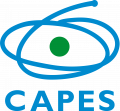
LADC 2022 – Fast Abstract
The LADC Fast Abstract track is a good opportunity for authors to share preliminary results, speculate on new directions to open problems or to present challenging or controversial issues. The submissions are short manuscripts (2-pages) in IEEE format describing unpublished, in-progress, novel work, opinions or ideas that can address any relevant issue to dependability.
The major topics of interest follow the main track and can be found in the LADC Call for Contributions (https://ladc.sbc.org.br/ladc2022-submit/).
The most innovative and challenging work will be awarded with a LADC 2022 – Fast Abstract Best Paper Award certification.
Submission deadline for fast abstracts is purposedly set after Notification deadline of the main track of the conference. This allows resubmitting a rejected paper as a Fast Abstract, to present it in a way other than a full research paper, which may better suit your work.
In this edition (2022) the fast abstracts track will be hybrid, allowing authors and event attenders to participate in person or remotely.
Important Dates
- Paper submission: Oct 10, 2022 Oct 19, 2022 (extended)
- Author notification: Oct 25, 2022 Oct 26, 2022
- Camera Ready: Oct 28, 2022 Oct 29, 2022
- Symposium: Nov 21-24, 2022
Submission Guidelines
Academics and industrial practitioners are invited to submit fast abstracts limited to two pages (IEEE double-column format). Accepted papers will be published in the SBC Digital Open Library (https://sol.sbc.org.br/index.php/indice) as supplemental volume of the LADC 2022 proceedings. If accepted, at least one author is committing to present the paper at the conference (in person or remotely).
Papers must be submitted via JEMS at https://submissoes.sbc.org.br/home.cgi?c=4196.
Comments and questions should be directed to the LADC 2022 Fast Abstract Chair: Raul Ceretta Nunes (UFSM) (Email: ceretta@inf.ufsm.br).
Technical Program Committee
- Diego Kreutz (Federal University of Pampa, Brazil)
- Edson Tavares de Camargo (Federal University of Technology – Paraná, Brazil)
- Fatima Mattiello-Francisco (National Institute for Space Research, Brazil)
- Ivanovitch Silva (Federal University of Rio Grande do Norte, Brazil)
- Luciana Arantes (Sorbonne Université, France)
- Luiz Affonso Guedes (Federal University of Rio Grande do Norte, Brazil)
- Raul Barbosa (University of Coimbra, Portugal)
- Raul Ceretta Nunes (Federal University of Santa Maria, Brazil)







